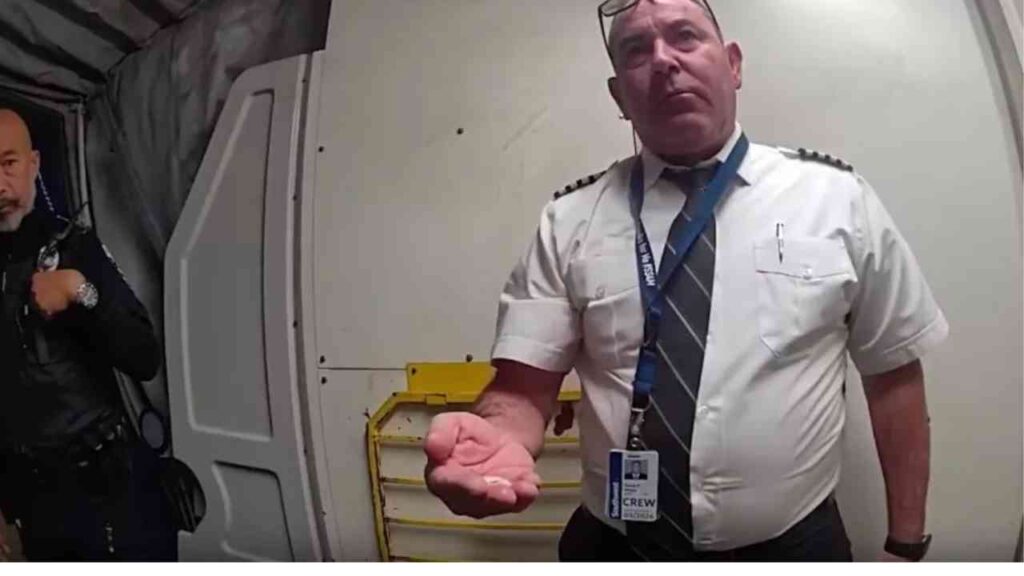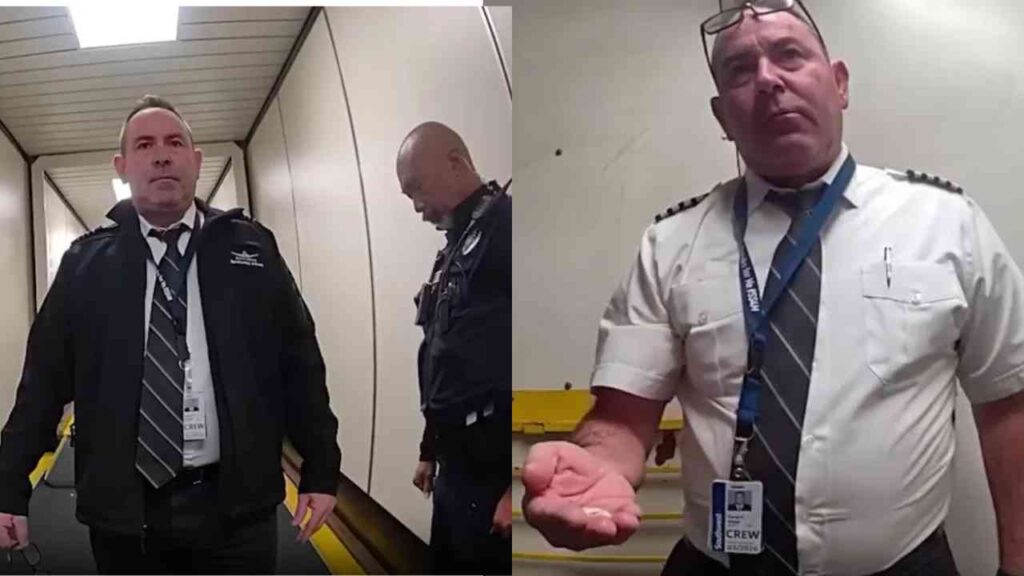A Southwest Airlines pilot was arrested and removed from duty after being suspected of being under the influence of alcohol moments before takeoff, causing significant flight delays and raising serious aviation safety concerns.
The Incident at Savannah Airport
Captain David Allsop, 52, of New Hampshire, was taken into custody at Savannah/Hilton Head International Airport in Georgia in January. The incident occurred just before Southwest Flight 3772 was scheduled to depart for Chicago at 6:05 AM, ultimately delaying the flight until 11:00 AM.
Body camera footage from responding officers shows the dramatic moment when police boarded the aircraft and escorted Allsop from the cockpit in front of shocked passengers. The video captures officers stating they could detect the odor of alcohol on the pilot’s breath during their initial confrontation on the jet bridge.
Pilot’s Response and Testing
When questioned by police, Allsop claimed he had consumed only “a few beers” the previous evening and suggested that any alcohol odor might be coming from his Rogues nicotine gum. Initially reluctant to submit to sobriety testing, telling officers “no, there is no need,” he eventually agreed after some hesitation.
According to police reports, Allsop took three sobriety tests, failing two of them. Following these results, officers arrested him and took him to the station for further questioning on charges of driving under the influence.

Aviation Career and Background
Allsop’s LinkedIn profile indicates he had been flying for Southwest Airlines since 2006, bringing nearly two decades of experience with the carrier. Prior to his commercial aviation career, he served nine years as a pilot in the U.S. Air Force, flying various squadron aircraft.
His extensive aviation background makes the allegations particularly concerning, given the high safety standards expected of commercial airline pilots.
Legal Defense and Certification Status
Southwest Airlines has permanently removed Allsop from duty, and his pilot certification has been revoked. However, his defense attorney, David Chaiken, maintains his client’s innocence, stating that the body camera footage “confirms what should be obvious to anyone who watches it — Captain Allsop committed no crime.”
The case highlights the strict regulations governing pilot sobriety, with federal law prohibiting pilots from operating aircraft with a blood alcohol level above 0.04% — significantly lower than the 0.08% standard for driving motor vehicles.
Airline Response and Passenger Impact
Southwest Airlines acknowledged the incident and apologized to affected passengers. A company spokesperson emphasized their commitment to safety: “There’s nothing more important to Southwest than the safety of our employees and customers.”
The airline accommodated passengers on alternative flights while expressing regret for the travel disruption. The company confirmed they were conducting their own investigation into the matter alongside the ongoing police investigation.
Broader Context of Pilot Intoxication Cases
This incident reflects a concerning pattern within the aviation industry. In 2023, Delta Airlines pilot Lawrence Russell Jr., 63, was found to be two-and-a-half times over the legal limit before a scheduled transatlantic flight from Edinburgh to New York.
Russell’s case involved airport security discovering two bottles of Jägermeister in his luggage, with one bottle half-empty. When confronted, he admitted to consuming the missing alcohol. Blood tests revealed Russell had 49 mg of alcohol per 100 mg of blood, far exceeding legal limits for pilots.
Aviation Safety Implications
These incidents underscore the critical importance of strict sobriety enforcement in commercial aviation, where pilots are responsible for hundreds of lives during each flight. The lower blood alcohol threshold for pilots recognizes that even minimal impairment can have catastrophic consequences at 30,000 feet.
The swift response by airport authorities and airlines in both cases demonstrates the aviation industry’s zero-tolerance approach to pilot intoxication, though questions remain about detection and prevention systems.
Ongoing Investigation
The investigation into Allsop’s case continues, with authorities working to determine the full circumstances that led to his arrest. The incident has raised questions about pre-flight screening procedures and whether additional safeguards might prevent similar situations.
For Southwest Airlines, the case represents both a significant operational disruption and a test of their safety protocols. The airline’s quick action to remove the pilot and accommodate passengers reflects standard industry practice when safety concerns arise.
Industry Standards and Consequences
Federal Aviation Administration regulations treat pilot intoxication as one of the most serious violations in commercial aviation. Consequences can include permanent license revocation, criminal charges, and civil penalties, reflecting the enormous responsibility pilots bear for passenger safety.
The strict enforcement serves as a deterrent and reinforces public confidence in commercial aviation safety, though incidents like these remind travelers and industry professionals alike of the human factors that can compromise flight safety.
As this case moves through the legal system, it will likely serve as another reminder of the aviation industry’s uncompromising stance on pilot sobriety and the severe consequences faced by those who violate these critical safety standards.






